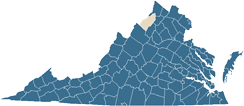Summer Internship Program: Shenandoah County-Position 1

Primary Program Area Focus: ANR
1. Describe your plans for this internship. (i.e. What specifically will the intern be doing?)
The VCE Shenandoah Intern will engage in several projects. At the beginning of the internship the intern will spend most of their time doing work related to Slug Management in No-Till. The intern will support a multi-state research project by scouting fields to both help educate farmers on slug management options and to collect data for the research component of the project. The intern will learn how we use data collected directly from farmers fields to both teach farmers about current management technologies and how that data is used in applied research (a living laboratory). Recently the Virginia No-Till alliance placed a priority on holding on-farm mini-meetings that focused on slug management. Thus, the intern will help with organizing and conducting one mini-field day. A little later in the summer the intern will begin doing field work to Graze 300 VA initiative. A specific goal will be to teach farmers how to use a “Grazing Wedge” and to monitor pasture growth rates and teach farmers better pasture management techniques. Additional work will include collecting soil nitrate tests, scouting problem fields, and supporting Extension work with animal mortality management. The Intern will also spend a little time supporting Mark Sutphin with spotted lantern fly work; visiting with local 4-H efforts and visiting with the Family and Consumer Science Agents in PD-7.
2. Describe the knowledge / skills you expect the intern to gain from this experience.
The intern will gain knowledge about how Crop and Soil Science Extension Agents do their jobs. Below is a list of knowledge and skills the Intern will gain.
How to use the Slug Damage Rating System for scouting fields.
The intern will learn how to identify both slugs and beneficial insects.
The intern will learn how Extension does applied research to both teach farmers and to gain additional knowledge for solving problems.
The intern will learn how to organize and run a group educational event.
How to collect soil nitrate tests.
How to scout for various pests that are prevalent in crops.
How to use a falling plate meter for assessing pasture growth.
The intern will learn alternative techniques for achieving good grazing management.
The intern will gain knowledge as to the day-to-day functions of an Extension Office.
- The intern will gain knowledge about summer 4-H Programs and about our Family and Consumer Science Programs.
3. How will the intern learn about the breadth of VCE and our various program areas?
The intern will be housed in the VCE Shenandoah Unit. There will be some time spent answering phones and becoming familiar with office duties. The intern will also spend time supporting a 4-H Day Camp (or will help with a virtual camp), the intern will spend at least one day helping both Karen Poff and Vanessa Santiago with their Family and Consumer Science Program. The Intern will spend at least one day with Mark Sutphin (likely helping with the Spotted Lantern Fly Program). The intern will be directly involved in an applied research project that is a collaborative effort among the University of Delaware and Virginia Tech. The intern will be directly involved in the statewide Graze 300 VA initiative.
- Home
- Job Description and Qualifications
- How to Apply
- FAQs
- Locations of Current Internship Opportunities
Read about Internship Experiences of Former VCE Interns
- Emily Allman - Fairfax
- Emily Bowman - Frederick
- Cadence Campbell - Buckingham
- Denisa Hendriyadi - Arlington
- Sydney Hudson - Greensville/Emporia


